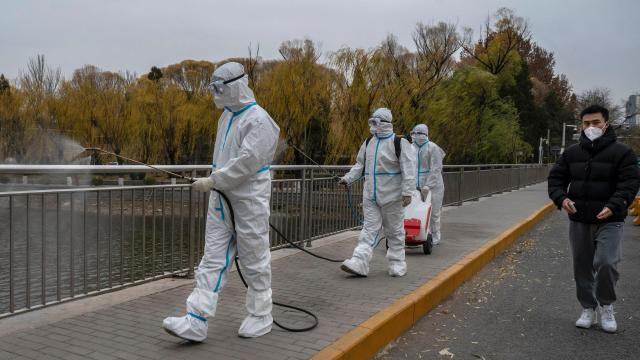Major Apple supplier Foxconn says its Zhengzhou iPhone plant should resume “full production” by January following months marked by covid-19 outbreaks and mass protests in response to strict pandemic restrictions.
That prediction, according to Reuters, was likely intended to soften the blow of news from Foxconn that its November revenues fell 11.4% year over year, an unexpected decline attributed largely to the disruptions. The company is reportedly already recruiting new employees in an effort to restore capabilities to previous levels as quickly as possible. A source speaking with Reuters said those recruitment efforts, if successful, could lead the company to resume full production in three to four weeks.
“At present, the overall epidemic situation has been brought under control with November being the most affected period,” Foxconn said according to Reuters.
Foxconn did not immediately respond to Gizmodo’s request for comment.
In late November, thousands of workers rushed the iPhone assembly plant in mass protest over the country’s covid-19 lockdown restrictions and unmet promises over pay. Those protests turned violent, with videos showing police and security forces beating people with shields and batons and using tear gas to clear streets. Those demonstrations led to similar outbursts in other cities.
At the time of the protests, analysts estimated the disruptions could affect about six million iPhone “Pro units” for the remainder of 2022, with Apple and Foxconn reportedly looking to somehow make up for those lost units in 2023. All told, Reuters estimates those disruptions may have impacted more than 30% of the Zhengzhou site’s November production. That single site reportedly produces the majority of Apple premium iPhone models, including the new iPhone 14 Pro.
Zooming out, those significant production delays may be fast-tracking Apple’s goal of moving more operations out of China. In recent weeks, according to a recent Wall Street Journal report, Apple told its suppliers to “plan more actively” for assembling Apple products in Vietnam and India and reduce its dependency on Taiwanese suppliers. Those conversations began prior to the protests, with pandemic disruption, log jammed supply chains, and increasingly tense geopolitical bickering between the U.S. and China all contributing to a need to diversify production areas. Earlier this year, Apple announced it would begin moving some iPhone 14 manufacturing to India as part of a longer term goal to ship 40-45% of its iPhones from the country.
